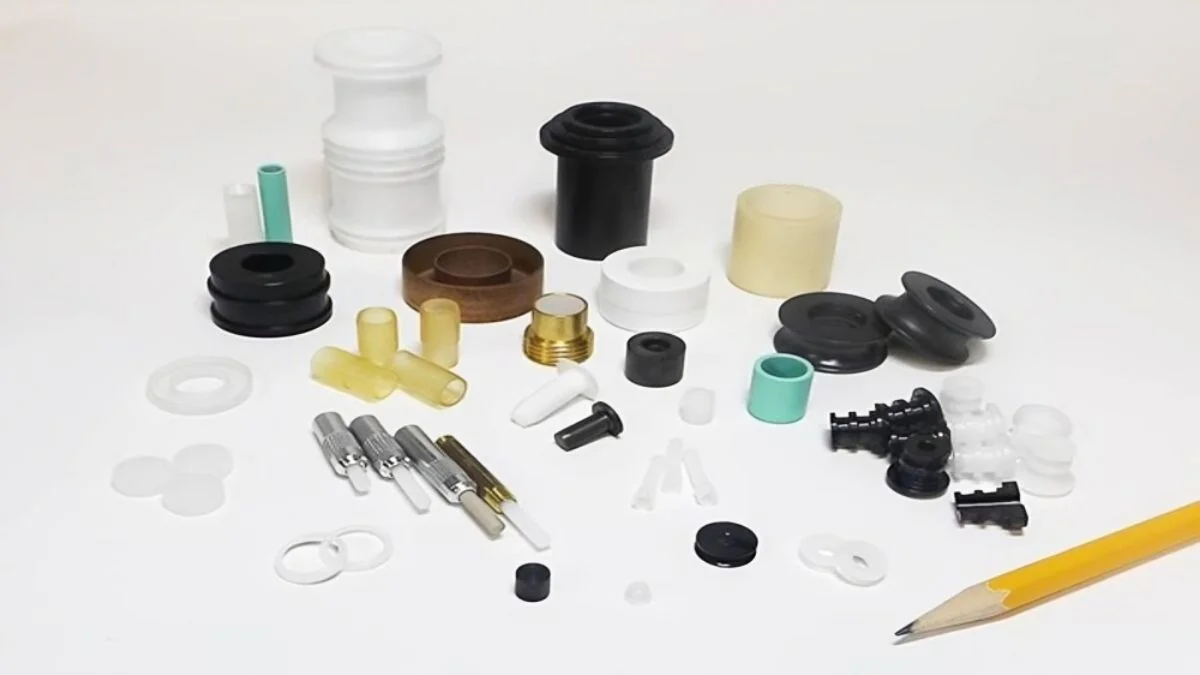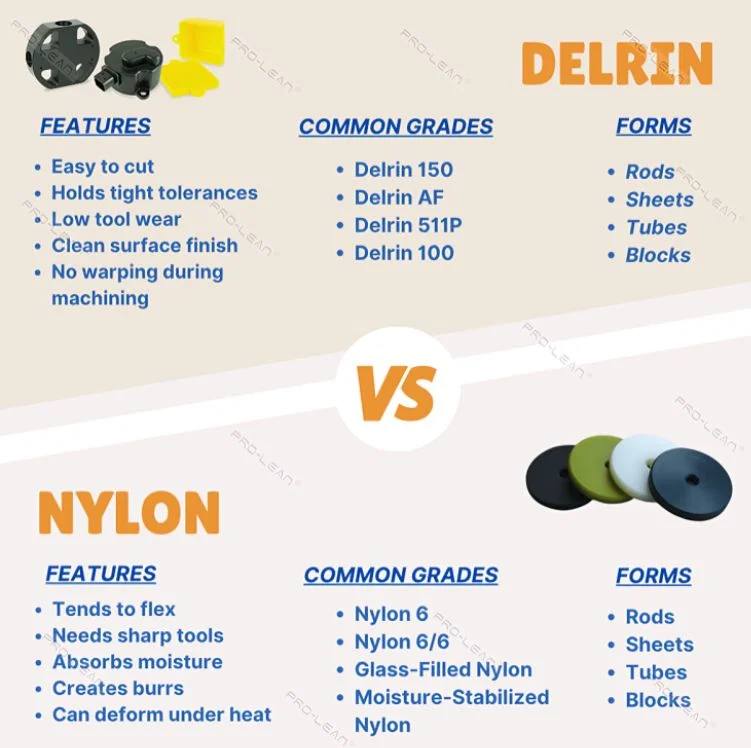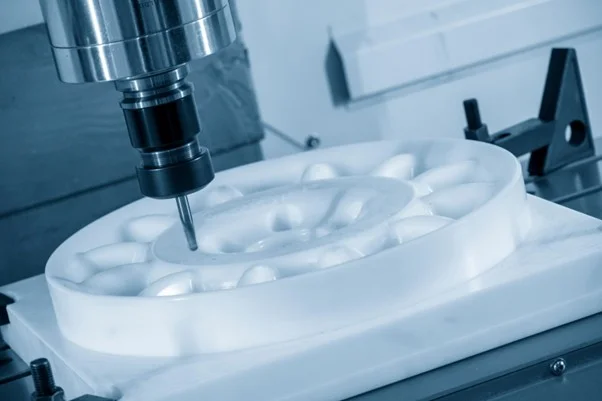GENERAL
CNC Plastic Parts: Precision, Durability, and Versatility

In modern manufacturing, CNC plastic parts play a crucial role, specifically for those industries that seek cost-effective, corrosion-resistant, and lightweight components. Now, custom parts can be manufactured with high precision due to the advancements in plastic machining technologies, whether for prototypes or full-scale production.
Be it aerospace, medical, or automotive applications, CNC machinery ensures standard, accuracy, and consistency in every plastic component. This article will cover all aspects of CNC plastic parts, from materials and processes to their benefits and typical uses.
Table of Contents
What exactly are CNC Plastic Parts?
CNC plastic parts are those components made solely through Computer Numerical Controlled machines, which precisely cut, drill, and mill plastic materials to convert them into desired shapes.
CNC machinery offers tight tolerances and repeated accuracy, which is desirable for industries that seek consistency.
Plastic materials are usually selected for their low weight, anti-corrosion, and insulation properties. Some common types include ABS, polycarbonate, Delrin(acetal), PEEK, nylon, and PETG.
Every material has its own exclusive machinability and physical properties; thus, selecting the right material is very important while keeping the end use in mind.
One of the key benefits of plastic machining is that it can create geometries from simple to complex levels without compromising the strength and dimensional stability.
Besides this, it is broadly used in medical devices, consumer electronics, and efficient automotive plastic machined parts applications.
Best Plastic Materials for CNC Machining
The standard criteria for choosing the best plastic machined are based on mechanical conditions, temperature, and environmental factors. Although various plastics can be used in CNC machining, certain materials are considered the best because of their ease in processing and dependability.
Delrin
Delrin is very popular in automotive and industrial parts, and is most commonly known to be machined well and dimensionally stable.
Nylon
It can be used on bushings and mechanical parts because it is strong and highly wear-resistant.

PEEK
It is a high-performance plastic used in aerospace and medical fields for its thermal resistance and chemical inertness.
Polycarbonate
It is impact resistant, robust, and transparent, which makes it a good selection of lenses or a cover case.
PTFE (Teflon)
It has low friction and high chemical resistance; hence, it is usually used as a seal or gasket.
These machinable plastics are ideal for various industries for their performance and adaptability. Combining the right plastic with expert machining ensures superior product life and functionality. Businesses prefer customized machined parts that conform to their specifications, establishing quality standards and minimizing material waste.
The Process of Plastic Machining
Typically, they incorporate various CNC plastic machining techniques, including drilling, routing, turning, and milling. CNC milling is the most common process, and plastic blocks are converted into intricate shapes using multi-axis cutting tools.
The process starts with CAD (Computer-Aided Design) models, which are converted into machine-readable G-codes. CNC machines then follow these commands and instructions to produce the final component. During this process, it is very important to control the heat and avoid material warping, especially in thermoplastics like polycarbonate or nylon.

Fine surface finish, tight tolerances, and detailed features can be achieved through plastic milling. For that reason, it is suitable not only for plastic prototype development but also for full-scale production. To maintain the quality, tool selection, cutting speed, and the use of coolant are adjusted according to the properties of the plastic.
In addition to precision, this process has another advantage: speed. Compared to injection molding, which demands more molds and setup time, CNC machining offers a fast turnaround. It is ideal for industries with a swift demand for plastic machined components.
Applications of CNC-Machined Plastic Parts
CNC plastic parts have applications in various industries. The engineers and the designers can research and develop new designs because of their flexibility in machining. Now, we can speak about some of their applications in particular industries.
Automotive
Whether dashboard components or connectors, efficacious machined parts in automobiles have a significant effect on the minimization of automobile weight and fuel economy.
Medical Devices
Plastics such as PEEK and PTFE are biocompatible and sterilizable, so they are used in surgical tools and diagnostic equipment.
Aerospace
Lightweight and high-strength plastic components are used in interior panels, brackets, and electrical enclosures.
Consumer Electronics
Enclosures, buttons, and connectors use CNC plastic machining’s precision, providing clean aesthetics and functionality.
Industrial Equipment
Custom-made plastic machined parts help machinery to function efficiently, while replacing metal parts with lighter, rust-proof alternatives.
These applications demonstrate the steadily increasing importance of plastic parts machining, especially in those areas where cost, weight, and material resilience are major decision factors.
Advantages of CNC Plastic Machining
In comparison to different manufacturing methods, there are many distinct benefits of manufacturing plastic parts through CNC machining, making it an industry favorite for both prototyping and production.
High Precision & Accuracy
CNC technology allows high tolerances, making it ideal for functional and load-bearing components.
Material Efficiency
Subtractive machining reduces waste, especially when expensive plastics are used for machining.
Rapid Prototyping
Designers can test multiple design iterations rapidly through CNC plastic prototype production.
Customization
Customized machine parts can easily be scaled and modified based on feedback or updated designs.
Compatibility with Many Materials
CNC supports a wide variety of CNC machining materials, from soft plastics to high-performance polymers.
Scalability
Whether you require a single part or a thousand, CNC machining provides a flexible means for production.
Given the increasing demand for durable, lightweight, and versatile components, plastic manufacturing is expanding across every sector through CNC methods. CNC remains a strong foundation of modern production without compromising speed or quality.
Conclusion
CNC plastic parts deliver precision, durability, and versatility across industries like automotive, aerospace, and medical devices. With advantages like tight tolerances, rapid prototyping, and material efficiency, CNC machining is ideal for both prototypes and full-scale production.
Manufacturers ensure lightweight, corrosion-resistant, and high-performance components by selecting the right plastic, from Delrin to PEEK. Embracing CNC-machined plastics means investing in cost-effective, customizable, and future-ready solutions for modern engineering challenges.
Explore our blog, for more latest insights and tips.
-

 GENERAL7 months ago
GENERAL7 months agoChristofle – For Those Who Dream of Family Heirloom Silver
-

 SPORTS9 months ago
SPORTS9 months agoDiscover the World of Football with Streameast: Watch Your Favorite Leagues and Tournaments
-

 GENERAL1 month ago
GENERAL1 month agoUncovering the World of кинокрадко: The Dark Side of Film Piracy
-

 GENERAL4 months ago
GENERAL4 months agoATFBooru: Anime, Gaming, and Subculture Imageboard























